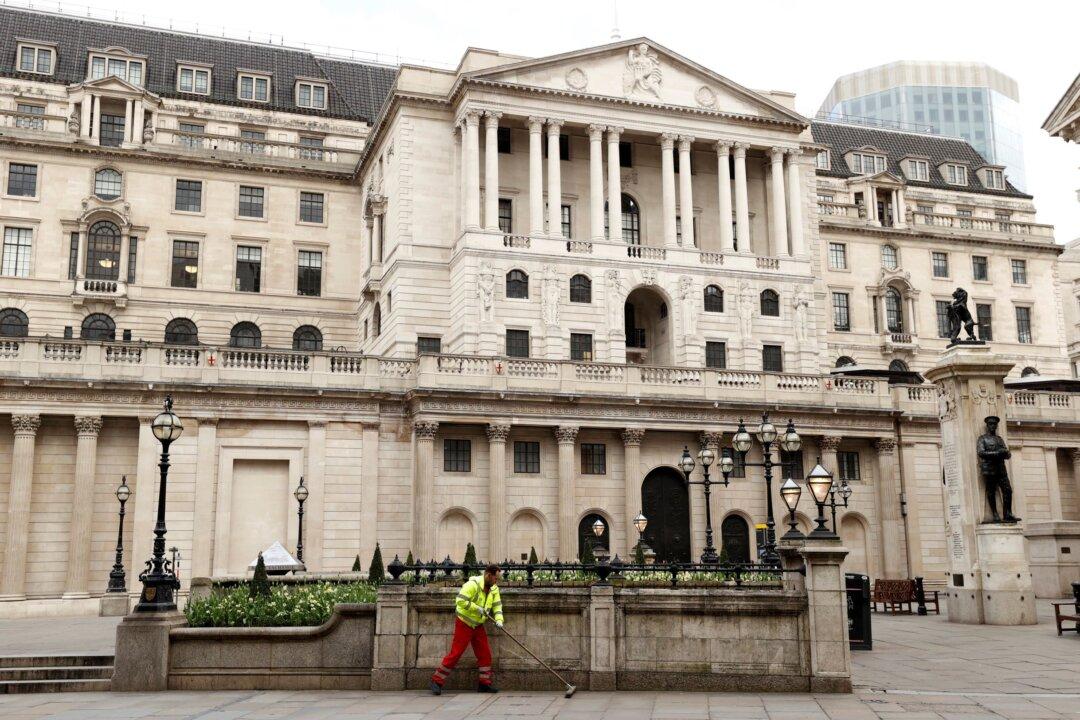LONDON—The Bank of England said inflation would rise above 4 percent later this year, and two policymakers called for an early end to the central bank’s quantitative easing programme due to rising price pressures.
Policymakers voted 7–2 to stick with the 895 billion pound ($1.2 trillion) asset purchase target they set in November 2020, when the BoE’s Monetary Policy Committee decided to buy a further 150 billion pounds of government bonds over the course of 2021.





